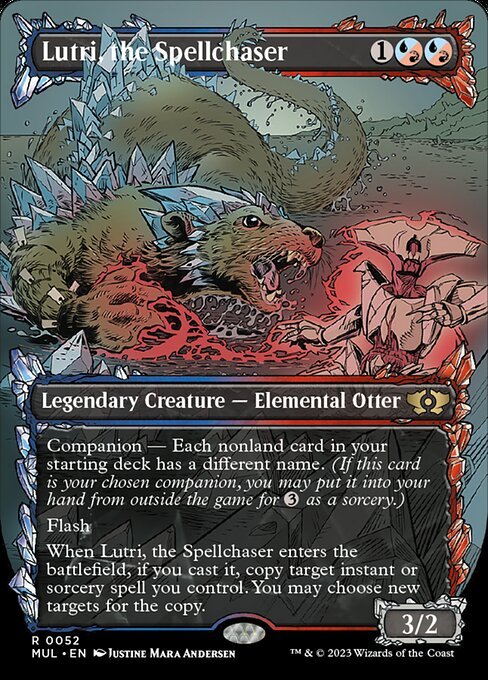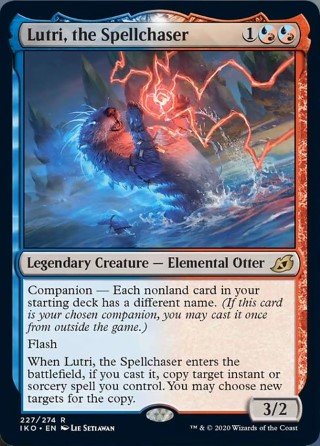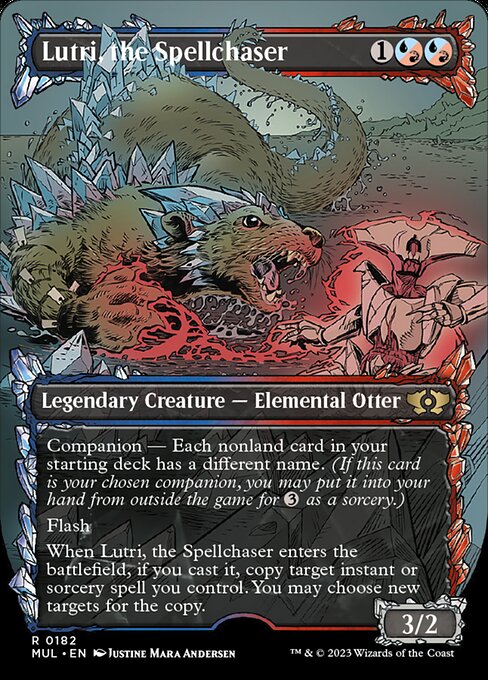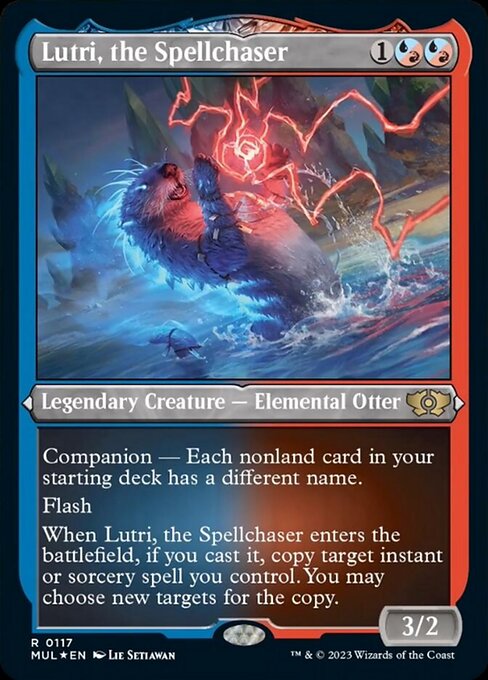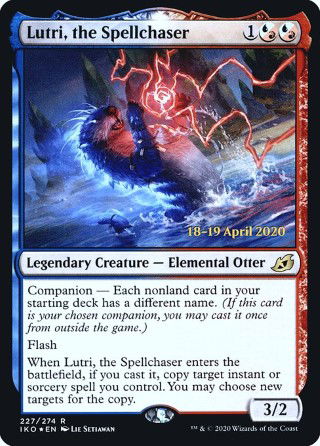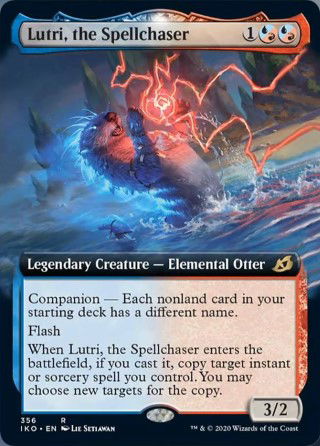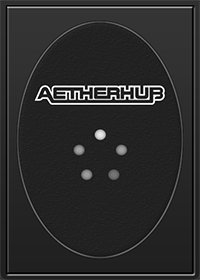
Lutri, the Spellchaser
Legendary Creature — Elemental Otter
Companion — Each nonland card in your starting deck has a different name. (If this card is your chosen companion, you may put it into your hand from outside the game for as a sorcery.)
Flash
When Lutri, the Spellchaser enters the battlefield, if you cast it, copy target instant or sorcery spell you control. You may choose new targets for the copy.
|
Multiverse Legends (MUL)
#182z, Rare |
Illustrated by: Justine Mara Andersen
Rulings
- 2020-06-01
If you reveal a companion outside the game, for as long as it remains there, you may pay any time you could cast a sorcery (that is, you have priority during your main phase and the stack is empty). Once you do, you put it into your hand and behaves like any other card you've brought into the game. For example, if it's discarded, countered, or destroyed, it's put into your graveyard, remaining in the game. This is a change from previous rules. - 2020-06-01
Paying to put your companion into your hand is a special action. It doesn't use the stack and players can't respond to it. Once you take this action, you may cast that card if it's legal to do so before any other player can take actions. - 2020-04-17
If the spell that's copied is modal (that is, it says “Choose one —” or the like), the copy will have the same mode. A different mode can't be chosen. - 2020-04-17
If the spell that's copied has an X whose value was determined as it was cast, the copy will have the same value of X. - 2020-04-17
If the spell has damage divided as it was cast (like Mythos of Vadrok), the division can't be changed, although the targets receiving that damage still can. The same is true of spells that distribute counters. - 2020-04-17
The controller of a copy can't choose to pay any alternative or additional costs for the copy. However, effects based on any alternative or additional costs that were paid for the original spell are copied as though those same costs were paid for the copy. - 2020-04-17
Your companion begins the game outside the game. In tournament play, this means your sideboard. In casual play, it's simply a card you own that's not in your starting deck. - 2020-04-17
Before shuffling your deck to become your library, you may reveal one card from outside the game to be your companion if your starting deck meets the requirements of the companion ability. You can't reveal more than one. It remains revealed outside the game as the game begins. - 2020-04-17
The requirements of the companion ability apply only to your starting deck. They do not apply to your sideboard. - 2020-04-17
If more than one player wishes to reveal a companion, the starting player does so first, and players proceed in turn order. Once a player has chosen not to reveal a companion, that player can't change their mind. - 2020-04-17
If you reveal a companion outside the game, for as long as it remains there, you may pay any time you could cast a sorcery (that is, you have priority during your main phase and the stack is empty). Once you do, you put it into your hand and behaves like any other card you've brought into the game. For example, if it's discard, countered, or destroyed, it's put into your graveyard, remaining in the game. This is a change from previous rules. - 2020-04-17
The companion ability has no effect if the card is in your starting deck and creates no restriction on putting a card with a companion ability into your starting deck. For example, Zirda may be in your starting deck even if your other permanent cards don't all have activated abilities. - 2020-04-17
The companion's other abilities apply only if the creature is on the battlefield. They have no effect while the companion is outside the game. - 2020-04-17
You may have one companion in the Commander variant. Your deck, including your commander, must meet its companion requirement. Your companion is not one of your one hundred cards. - 2020-04-17
Lutri's ability can copy any instant or sorcery spell you control, not just one with targets. - 2020-04-17
The copy is created on the stack, so it's not “cast.” Abilities that trigger when a player casts a spell won't trigger. It will resolve before the original spell does. - 2020-04-17
The copy will have the same targets as the spell it's copying unless you choose new ones. You may change any number of the targets, including all of them or none of them. If, for one of the targets, you can't choose a new legal target, then it remains unchanged (even if the current target is illegal).
| PRINTS | USD | EUR | Tix | |
|---|---|---|---|---|
|
|
$0.35 | 0.02 | ||
|
|
$0.42 | €0.16 | 0.02 | |
|
|
||||
|
|
$7.46 | |||
|
|
0.54 | |||
|
|
||||
|
|
||||
|
|
$1.94 |

